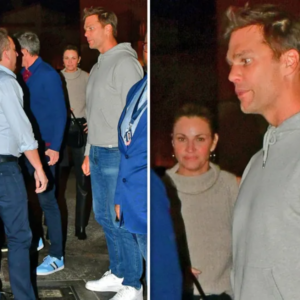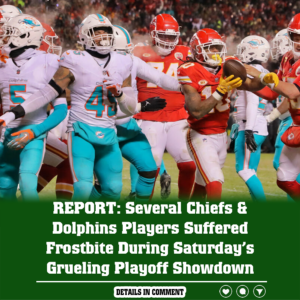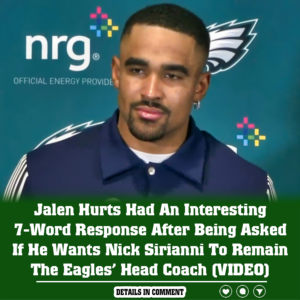It is hard to take anyone very seriously when they use the phrase “the woke mind virus” with a straight face. But, increasingly, when it comes to Elon Musk, there is no other option. Is he a visionary? A hypocrite? The last defender of the first amendment? Or simply a bullied kid who got his own back by buying the global playground and trashing it? Opinions of Musk are as volatile and wide-ranging as the man himself.

Rocket man … Elon Musk in June 2023. Photograph: Gonzalo Fuentes/Reuters
“When things are calm he seeks out storms,” says his biographer, Walter Isaacson. As this exhaustive documentary shows, when Musk acquired ownership and control of Twitter (subsequently rebranded X) in 2022, he certainly found one. The film works on several fascinating levels. It is a character study, a potted history of the last decade of American politics and also a detailed and disturbing exploration of how social media became a dysfunctional forum for the world’s grievances.
The pandemic and the Trump presidency were the strongest accelerants in this process. For years, Twitter had attempted to negotiate a balance between allowing free expression and refusing to tolerate hate speech and overt disinformation. But what is a company to do when the president starts spreading verifiable falsehoods on its platform, at a time when those falsehoods have the potential to cost lives? Twitter’s response was to suspend Trump. Musk was, at the time, annoyed about the compulsory closure of his Tesla factories. So, in opposition to lockdown, an uneasy alliance was born.
Who decides to suspend a president? In this case, people such as Yoel Roth, working in Twitter’s Trust and Safety department and about to become a lightning rod for Trumpite wrath. Interviewed at length, he is jittery, nervous and looks extremely young. He is also, in his measured way, defiant. Who are you, Roth is asked, to make this decision? “I’m no one,” he responds. “It shouldn’t be any one person’s decision” And there’s the nub of it. These people didn’t seek this power. They are essentially nerdy kids (although Roth did once call Trump “a racist tangerine” on Twitter, which probably didn’t help). He is right though. It shouldn’t be up to him alone. And it surely follows that it also shouldn’t be up to Jack Dorsey, or Mark Zuckerberg or Elon Musk.
Musk, meanwhile, was spiralling. He was becoming a high-profile example of the way in which a person’s buy-in to a conspiracy theory often wedges the door open for others. In one tweet (“My pronouns are Prosecute/Fauci”) he managed to insult transgender people, Covid victims and the integrity of medical science in the space of five words.
Here, things get unnerving. Musk’s opinionated carelessness is, in the context of his status, extremely dangerous. The list of people harassed and threatened after being the target of his tweets grows as the film proceeds. This amounts to its own form of censorship: the scariest censorship of all – self-censorship. If you suspect that a billionaire with more than 160 million followers (many of them aggressively protective of him) will disapprove of a course of action, you might decide not to take that action. This principle has subsequently applied to everyone who might oppose Musk’s worldview – from politicians to journalists. By the time Musk’s acolytes were using The Twitter Files (a leak of information claimed to show collusion between government and social media companies) as a pretext for excoriating Joe Biden’s presidency, one thing had become clear: social media had warped our discourse by ostensibly liberating it.
In its quiet, diligent way, the film is a noble response to this phenomenon. Stylistically and aesthetically, PBS documentaries typically resemble elongated news reports – no frills or fripperies, just reporting. In the context of our partial, bad-faith current news environment (nurtured, ironically, by Twitter), this feels admirably spartan and bracing – old investigative techniques, such as examining multiple perspectives and asking difficult questions of people on both sides of the argument, prove refreshing. Old-fashioned broadcasting might be one antidote to social media’s poisonous hysteria.
But what of Musk himself? He is hilariously grandiose at times, but also seems easily bored – which might be our salvation. Early in the film, there is a clip following him at the launch of one of his spacecraft. If you can ignore the wild extravagance of these endeavours, it is oddly charming. He looks like a little boy bubbling with excitement about having a chance to play with the biggest and best toys ever made. While the regulation of social media will be a headache for years to come, dare we hope that, one day, Elon Musk might decide to return to his rockets?
News
Dave Crosby, the individual who captured the attention of all three Voice Judges in record time. Watch his incredible performance – it’s truly astonishing!
From the moment he graced the stage, it was evident that a remarkable performance was about to unfold. As Dave serenaded the room, a captivating melody filled…
Tom Brady Sparks New Dating Rumors After Being Spotted Out At Dinner With Popular Sideline Reporter
Tom Brady has set off another wave of dating speculation following his brief romance with Irina Shayk. According to TMZ, the former NFL star was spotted out in Beverly…
REPORT: Several Chiefs & Dolphins Players Suffered Frostbite During Saturday’s Grueling Playoff Showdown
Multiple players are said to have suffered frostbite during Saturday night’s playoff showdown between the Kansas City Chiefs and Miami Dolphins at Arrowhead Stadium. The game was the fourth-coldest in NFL…
Female Eagles Fan Unleashed All Sorts Of Cruel, NSFW Insults Towards Bucs Fans After Her Team’s Ugly Wild Card Loss In Tampa (VIDEO)
A female Eagles fan went off on Buccaneers supporters after having to sit through a frustrating Wild Card fixture in which her team put just nine points…
Female Eagles Fan Unleashed All Sorts Of Cruel, NSFW Insults Towards Bucs Fans After Her Team’s Ugly Wild Card Loss In Tampa (VIDEO)
A female Eagles fan went off on Buccaneers supporters after having to sit through a frustrating Wild Card fixture in which her team put just nine points…
Jalen Hurts Had An Interesting 7-Word Response After Being Asked If He Wants Nick Sirianni To Remain The Eagles’ Head Coach (VIDEO)
Jalen Hurts has taken an exit at the first opportunity as his Eagles are out of the playoffs following a season in which they raced to 10-1 before…
End of content
No more pages to load











